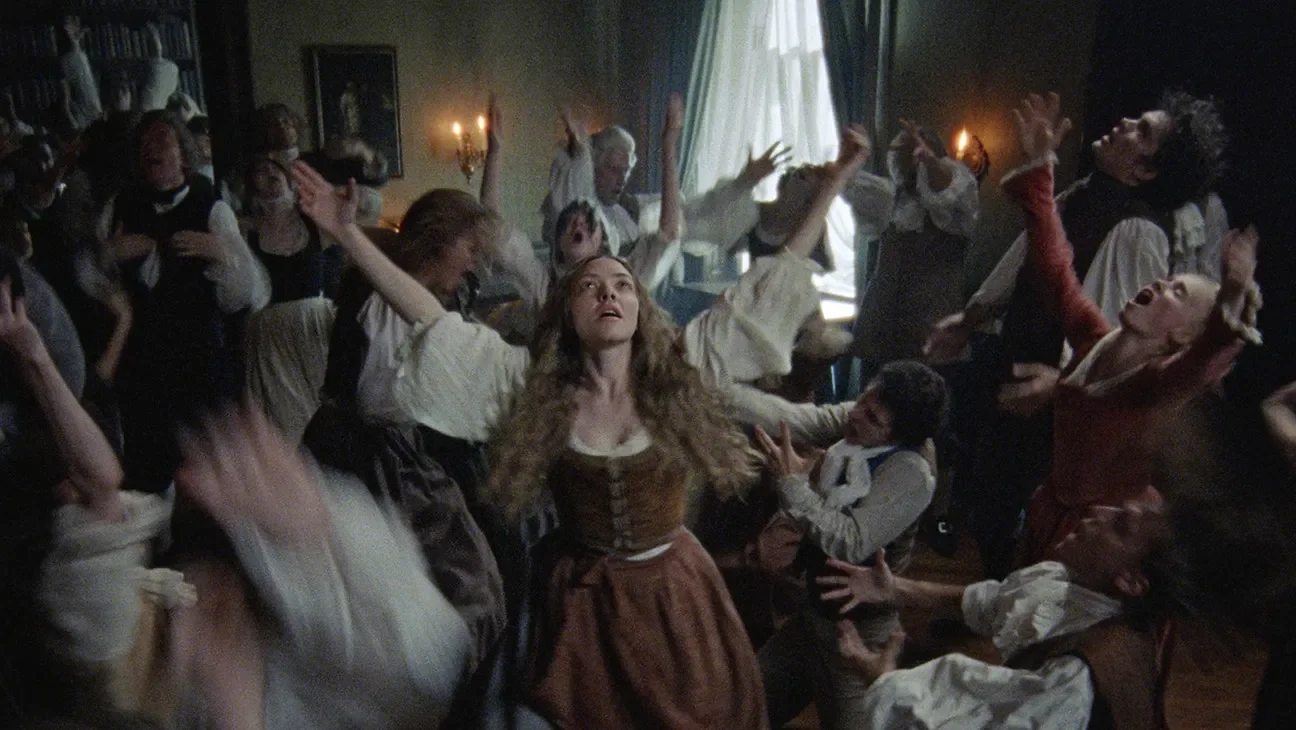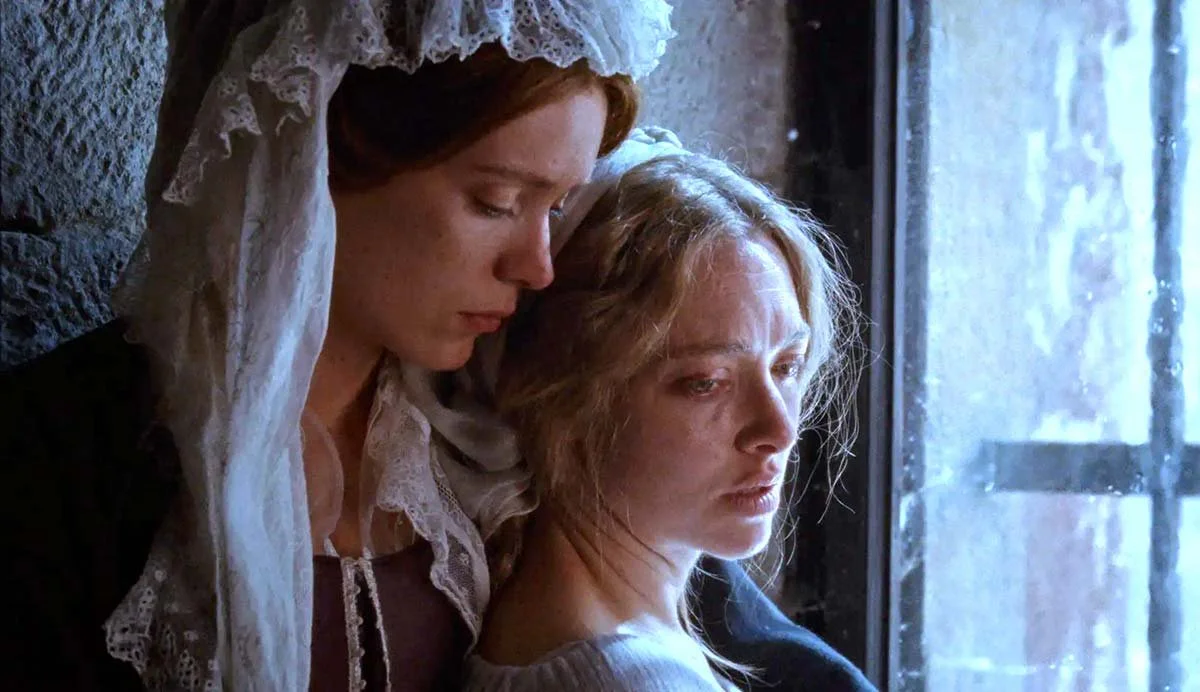The Testament of Ann Lee — Montclair Film Festival Review
Source: Searchlight Pictures
Mona Fastvold’s The Testament of Ann Lee is a fearless, one-of-a-kind experience. Ann Lee, the leader of the Shaker Movement, a restorationist Christian sect founded in the 18th century, was a fascinating and controversial religious figure. Fastvold’s decision to tell her story through a musical lens adds another layer of intrigue and creative risk. The Testament of Ann Lee is a bold swing from Fastvold; it’s an ambitious, unconventional biopic bursting with ideas that don’t quite cohere into a fully satisfying whole.
Amanda Seyfried is ferocious and fervent in the titular role. She carries the film with raw magnetism, portraying Ann with both fierce conviction and visceral vulnerability. Lewis Pullman delivers one of the most intense performances of his career as Ann’s brother, William Lee. Yet as compelling as the acting is, the characters remain frustratingly surface-level. Seyfried and Pullman strive to give their roles depth and humanity, but the screenplay ultimately undercuts their efforts.
Written by Fastvold and her partner Brady Corbet, the screenplay never fully capitalizes on its audacious premise. A musical biopic about a radical religious leader should be brimming with energy and provocation, but the script feels curiously restrained. Its unflinching and unapologetic depictions of childbirth and sexuality are daring, yet it still seems to play things too safe. The film never delves deeply enough into Ann’s inner thoughts, emotions, doubts, or desires. Instead, it comes across more like a reverent history lesson than an emotional or philosophical exploration. Fastvold and Corbet seem intent on celebrating the Shakers and portraying them in a virtuous and sympathetic light, but in doing so, they shy away from any meaningful critique, leaving the film devoid of sharper insight or complexity.
Source: Searchlight Pictures
Fastvold once again collaborates with composer Daniel Blumberg, who scored her previous film, The World to Come, and won the Academy Award for Best Original Score for Brady Corbet’s The Brutalist. Blumberg’s score is downright haunting. Drawing clear inspiration from Shaker hymns, his compositions lend the film a sense of authenticity and spiritual immersion. Similarly, the production design excels in recreating the time period with meticulous attention to texture and atmosphere.
William Rexer’s cinematography is enchanting. The shot compositions and blocking are striking and beautifully capture the choreography. Choreographer Celia Rowlson-Hall, who previously worked on films such as Smile 2 and After Yang as well as Corbet’s Vox Lux, shines here. The movement sequences do not resemble the conventional dancing one might expect from a musical. Instead, they give the church gatherings a hypnotic, trance-like rhythm that mirrors the vigor and intensity of their religious fanaticism.
The Testament of Ann Lee offers an intrepid premise, a captivating lead performance from Amanda Seyfried, and mesmerizing visuals. Unfortunately, these strong components never fully coalesce into something transcendent. The story remains surface-level, and the pacing bogs it down. For a musical about the “Shaking Quakers,” known for their ecstatic worship, the film feels surprisingly dull and lacking in drive. Despite its ambition and craftsmanship, The Testament of Ann Lee struggles to find the vitality and momentum needed to truly move—or shake—its audience.
The Testament of Ann Lee screened at the Montclair Film Festival on October 25, 2025. It will receive a limited theatrical release on December 25th.




